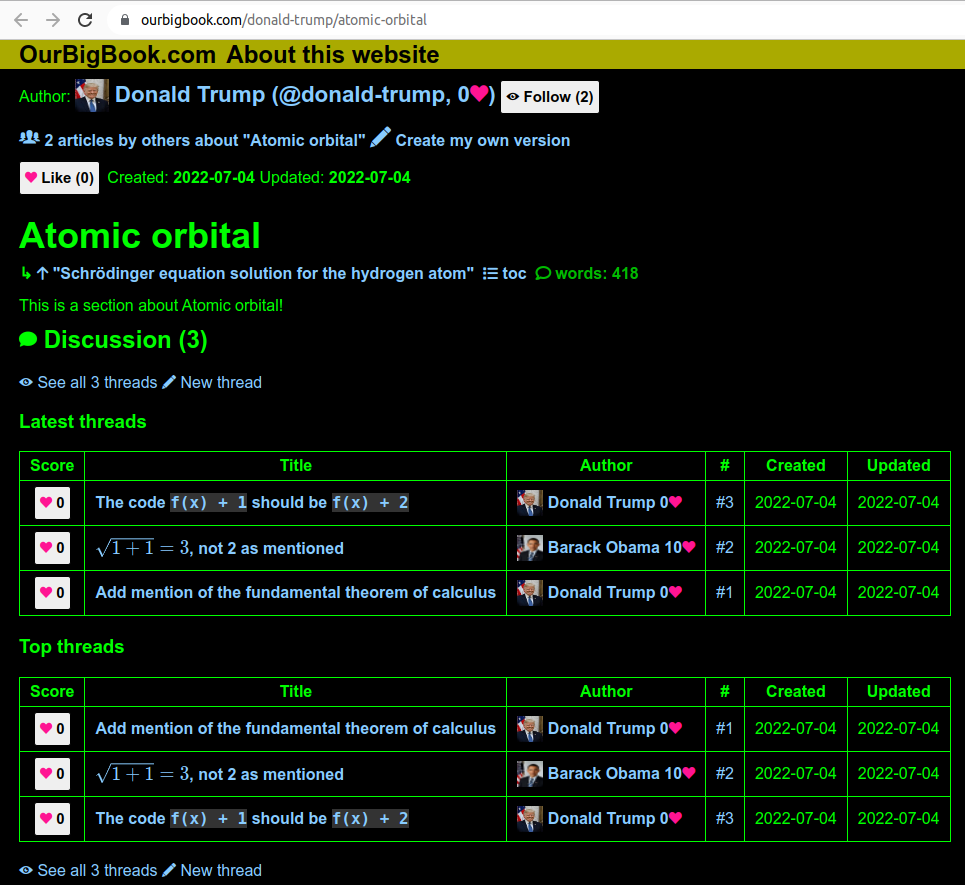Added this basic but fundamental protection layer to the website.
The email setup will of course be reused when notifications are eventually implemented.
Adding reCAPTCHA immediately after email is a must otherwise an attacker could send infinitely many emails to random addresses, which would lead to the domain being marked as spam. I was pleasantly surprised about how easy the integration ended up being.
Every article now has a (very basic) GitHub-like issue tracker. Comments now go under issues, and issues go under articles. Issues themselves are very similar to articles, with a title and a body.
This was part of 1.0, but not the first priority, but I did it now anyways because I'm trying to do all the database changes ASAP as I'm not in the mood to write database migrations.
Here's an example:
- ourbigbook.com/go/issue/2/donald-trump/atomic-orbital a specific issue about the article "Atomic Orbital" by Donald Trump. Note the comments possibly by other users at the bottom.
- ourbigbook.com/go/issues/1/donald-trump/atomic-orbital list of issues about the article "Atomic Orbital" by Donald Trump
You can now write:in lieu of the old:
<Blue cats> are nice.
= Blue cat
= Big blue cat
{parent=Blue cat}\x[blue-cat]{c}{p} are nice.
= Blue cat
= Big blue cat
{parent=blue-cat}Added
ourbigbook --format-source automatic code formatting. I implemented it for the following reasons:- I want to do certain automatic modifications to source code on web, e.g.:
- later on, much later, this will allow WYSIWYG export to plaintext
This also ended up having one unexpected benefit: whenever a new feature is added that deprecates an old feature, by converting the large corpus from github.com/cirosantilli/cirosantilli.github.io to the new feature I can test the new preferred feature very well.
For example, converting
\x[blue cat] en masse to the new insane syntax <blue cat> found several bugs with the new insane syntax.This seemed somewhat easy at first, so I started it as a way of procrastinating more urgent Web features (web scares me, you know), but it ended being insanely hard to implement, because there are many edge cases. Also, most bugs are not acceptable, as they would corrupt your precious source code and potentially output.
But well, it is done!
Articles by others on the same topic
There are currently no matching articles.
